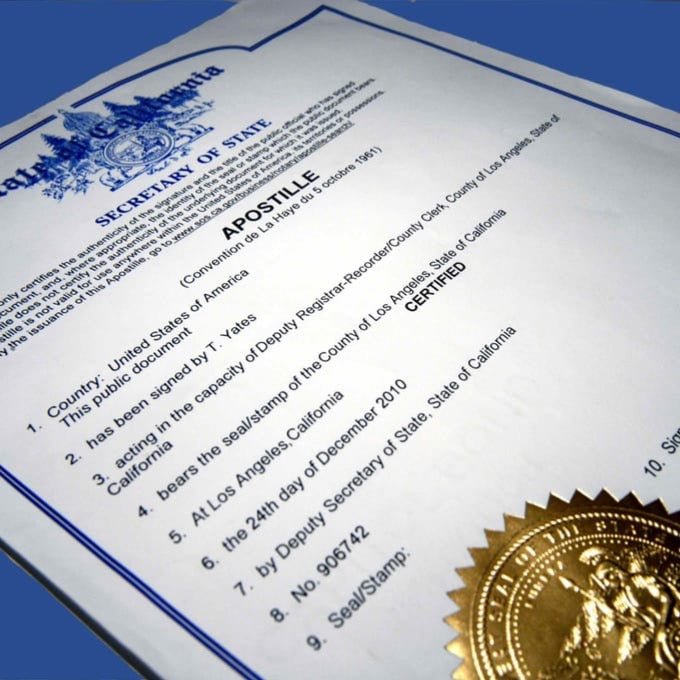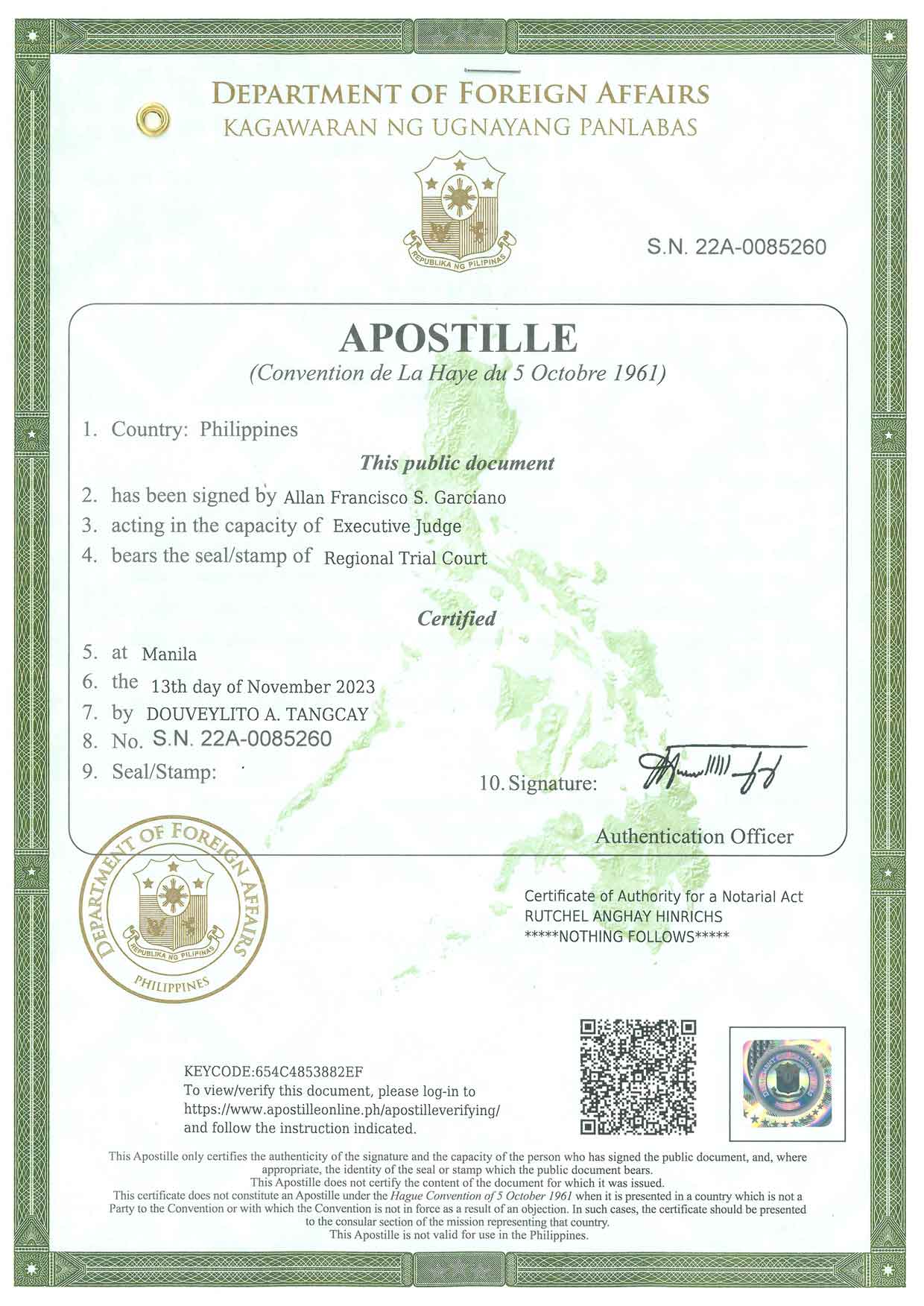Recognizing the Apostille Process: A Comprehensive Overview to International Record Verification
Browsing the intricate landscape of worldwide record authentication can be daunting without a clear understanding of the apostille procedure. This overview meticulously outlines the essential steps, from determining which papers need certification to sending them for verification by the Competent Authority. Comprehending the significance of an apostille and recognizing potential risks, such as incomplete submissions and language obstacles, can considerably simplify the verification trip. What specifically defines an apostille, and why is it so vital for papers predestined for Hague Convention nations? These inquiries create the foundation of our expedition right into this crucial legal procedure.
What Is an Apostille?
An apostille is a main certification that confirms the credibility of a paper for usage in an additional nation. This certification, provided by an assigned authority in the country where the record came from, guarantees that the record is recognized as valid and legit in the international sector. The process of obtaining an apostille includes a number of actions, including the confirmation of the file's signatures, seals, and stamps by appropriate governmental bodies.
The apostille offers as a globally acknowledged type of verification, implemented by the Hague Convention of 1961. This treaty, officially called the Hague Convention Eliminating the Requirement of Legalisation for Foreign Public Files, systematizes the procedure of record certification amongst member countries. The apostille itself is a standardized certification which contains certain info, such as the providing authority, the native land, and the day of issuance.
It is necessary to keep in mind that not all documents are eligible for an apostille. Commonly, public files like birth certifications, marital relationship licenses, court orders, and educational diplomas receive this qualification. Private papers, such as contracts and contracts, might call for registration and additional steps to qualify.
Value of Apostille
Comprehending what an apostille is sets the stage for appreciating its importance in global ventures. houston tx apostille. An apostille, essentially a form of qualification issued by an assigned authority, confirms the credibility of a file for use in foreign countries that are signatories to the Hague Apostille Convention. This standardized process removes the demand for further legalization by embassies or consular offices, consequently simplifying international transactions
It makes sure the reputation and approval of crucial documents-- such as copyright, marital relationship licenses, and educational diplomas-- throughout borders. For organizations, it facilitates the smooth conduct of worldwide trade, mergers, and procurements by providing a relied on approach of file confirmation.
In addition, an apostille enhances legal safety and conformity. Governments and organizations can confidently rely on the authenticity of files bearing an apostille, reducing the danger of scams and misrepresentation.
Papers That Require Apostille
When participating in international deals or lawful issues, details documents typically demand the authentication provided by an apostille. This ensures their acknowledgment and approval in countries that are signatures to the Hague Apostille Convention. Typically, individual documents such as copyright, marital relationship certificates, and death certifications require an apostille, specifically when they are made use of for procedures like migration, marital relationship abroad, or global probate matters.
Educational files are one more group regularly needing apostilles. Diplomas, records, and scholastic documents typically require this verification for objectives such as pursuing further education, work, or specialist licensing in a foreign country (houston tx apostille). This action guarantees that the documents are acknowledged as legit and valid
Legal records, including powers of lawyer, testimonies, and court orders, also typically necessitate apostilles. Company papers such as certifications of unification, go to this website bylaws, and industrial agreements may need an apostille to assist in international profession, develop foreign branches, or participate in cross-border lawful procedures.
Steps to Obtain an Apostille

Getting an apostille entails a multi-step process that ensures the credibility and acceptance of your files helpful hints in international nations. The first step is determining which documents need an apostille. houston tx apostille. Usual records consist of copyright, marriage licenses, academic records, and corporate files
When recognized, the file must be certified by the appropriate providing authority. This may involve notarization by a notary public or confirmation by a regional or state authorities, relying on the type of document. After qualification, the record should be sent to the marked Competent Authority in the paper's native land. In the USA, for instance, this is typically the Secretary of State's office for every state.
The entry procedure generally needs a completed application, the initial file, and a fee. Some territories might use the choice of expedited handling for an additional charge. Upon successful verification, the Competent Authority will certainly fasten the apostille certification to the file, thus verifying its credibility.
Common Obstacles and Solutions
Browsing the apostille process can present several common challenges that, if not properly addressed, may delay or complicate file authentication. Each country has certain needs for the kinds of records that can be apostilled, and any inconsistency from these can result in denial.
Another typical obstacle is understanding the different handling times. Processing times can vary dramatically between countries and also in between various areas within the same country. It is my explanation vital to account for these variants when planning the apostille procedure to avoid unanticipated hold-ups.
Furthermore, language obstacles can pose considerable obstacles. Records in an international language frequently call for certified translations, and any type of inaccuracies in translation can bring about additional issues. Engaging a specialist translation solution can reduce this risk.

Final Thought
Grasping the apostille procedure substantially improves the efficiency of worldwide document authentication. By understanding the requirement of determining and licensing needed documents, and browsing the submission to the Competent Authority, the process comes to be extra convenient. Awareness of usual obstacles, such as insufficient entries and language barriers, even more aids in avoiding possible delays. Making sure papers are correctly apostilled promotes their acceptance in Hague Convention signatory nations, thereby sustaining smooth international legal and management treatments.